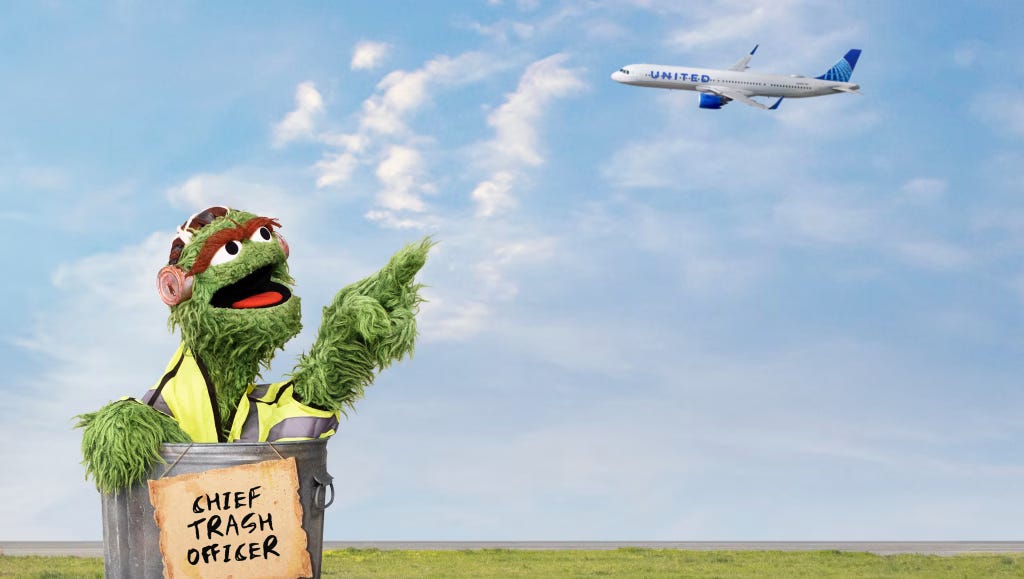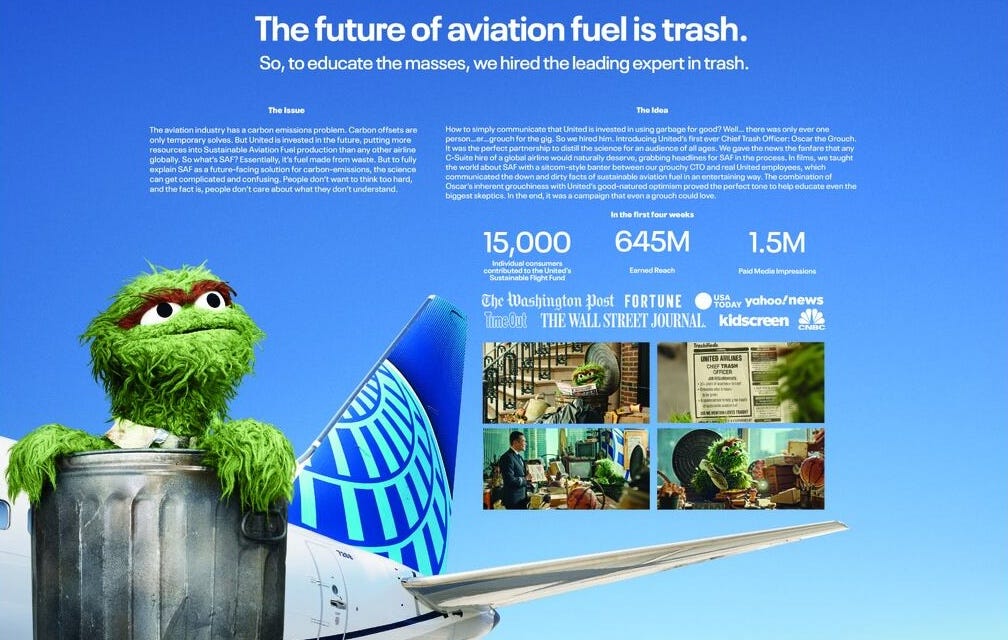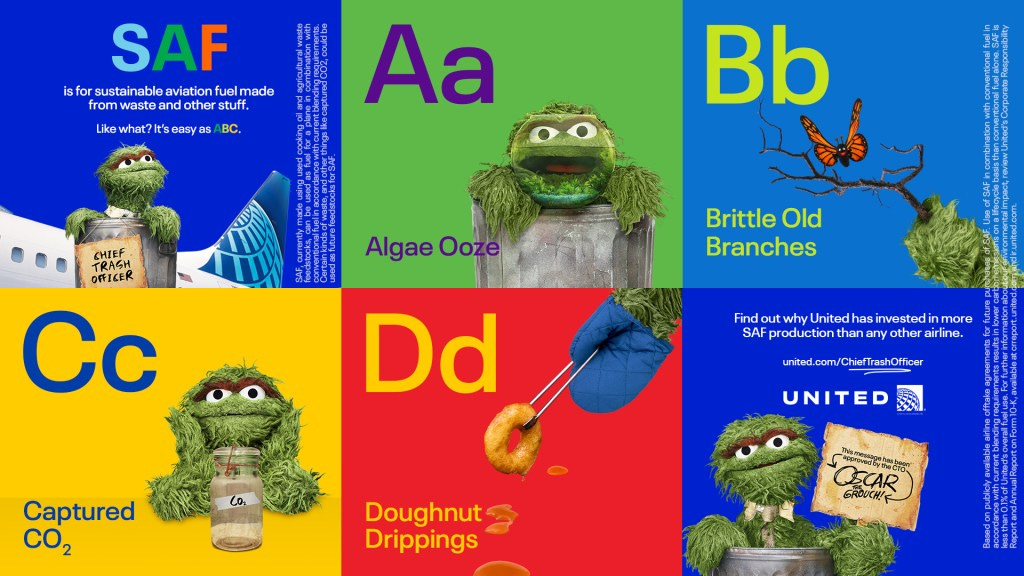Greenwashing With Oscar The Grouch
United taps his credibility to pitch sustainable fuels.
The perfect green pitch-puppet.
This summer, while boarding a flight, I came across one of the weirdest greenwashing campaigns ever: Oscar The Grouch talking sustainability for United Airlines.
In a way though, it made sense: people have doubts about flying these days, and about buying seat upgrades, which generate higher emissions (and higher airline profits). Is it worth the money? Is it safe? How bad will the delays be? And... should I feel bad about my tons of CO2 emissions from flying?
Emotionally, Oscar eases lots of concerns: he's an old friend, a credible yet fun-loving presence with lots of experience navigating life in metal cans - like airplanes! If he says United is sustainable, it carries a lot of weight.
In the campaign, Oscar pitches United's 'sustainable aviation fuel' (SAF) leadership, and more specifically the dream of creating sustainable aviation fuel out of trash.
And the campaign's really fun:
Why is this greenwashing?
Problem is, sustainable flying isn't a thing yet, and may not be for decades. Some small electric planes are already flying (and really cool), but their carrying capacity is just a few people. There's hype about hydrogen powered planes too, but they're having problems getting off the ground.
Which brings us to 'sustainable aviation fuel,' one of many so-called 'clean fuels' which people are now realizing have been massively overhyped.
The current trickle of SAF on the market comes from the logistically intense process of collecting and repurposing used cooking oil from restaurants. Other processes are possible, but highly capital intensive: a recent Wall Street Journal piece called them 'sputtering money pits.' And some ways of producing these fuels, like making them from crops (corn ethanol), would result in even higher emissions.
To be sure, United and other airlines are trying - or at least pretending to try - on SAF. The European airlines are ahead, because the EU has a mandate that 2% of airline fuel must be sustainable by next year and 6% by 2030 (United has staunchly opposed such targets).
United buys and burns about $12 billion worth of jet fuel every year, which is a bit over three billion gallons. Yet its sustainable fuel usage is currently only around a tenth of a percent of that. To be fair, United has been investing in startups working to make sustainable-fuels. But one of the most prominent - and the one that was trying to turn trash into fuel - recently collapsed.
So United's story about SAF from trash is just that that: a story.
A brilliant hire… but why so cheap?
How did Oscar get tangled up in this whole thing? Obviously, United paid money for his services (actually, they paid money plus miles - you can't make this shit up). But how much money?
Oscar's 'owner,' the non-profit Sesame Workshop (formerly Children's Television Workshop), makes most of its money from TV program distribution, but about 18% comes from licensing. In 2023, the year United hired Oscar, the airline donated 'between $100,000 and $249,000' to Sesame Workshop. That sounds like a lot, but compared to the $12 billion a year United spends on jet fuel, it's nothing!
So to Sesame Workshop (which has $400 million in the bank), I say this: if you're going to sell Oscar's beloved good name, his gravitas and all the trust and believability he inspires... please don't sell it for greenwashing. And if you absolutely must... don't sell so cheap!







